Out-of-this-world fun with Physics and Astronomy Club
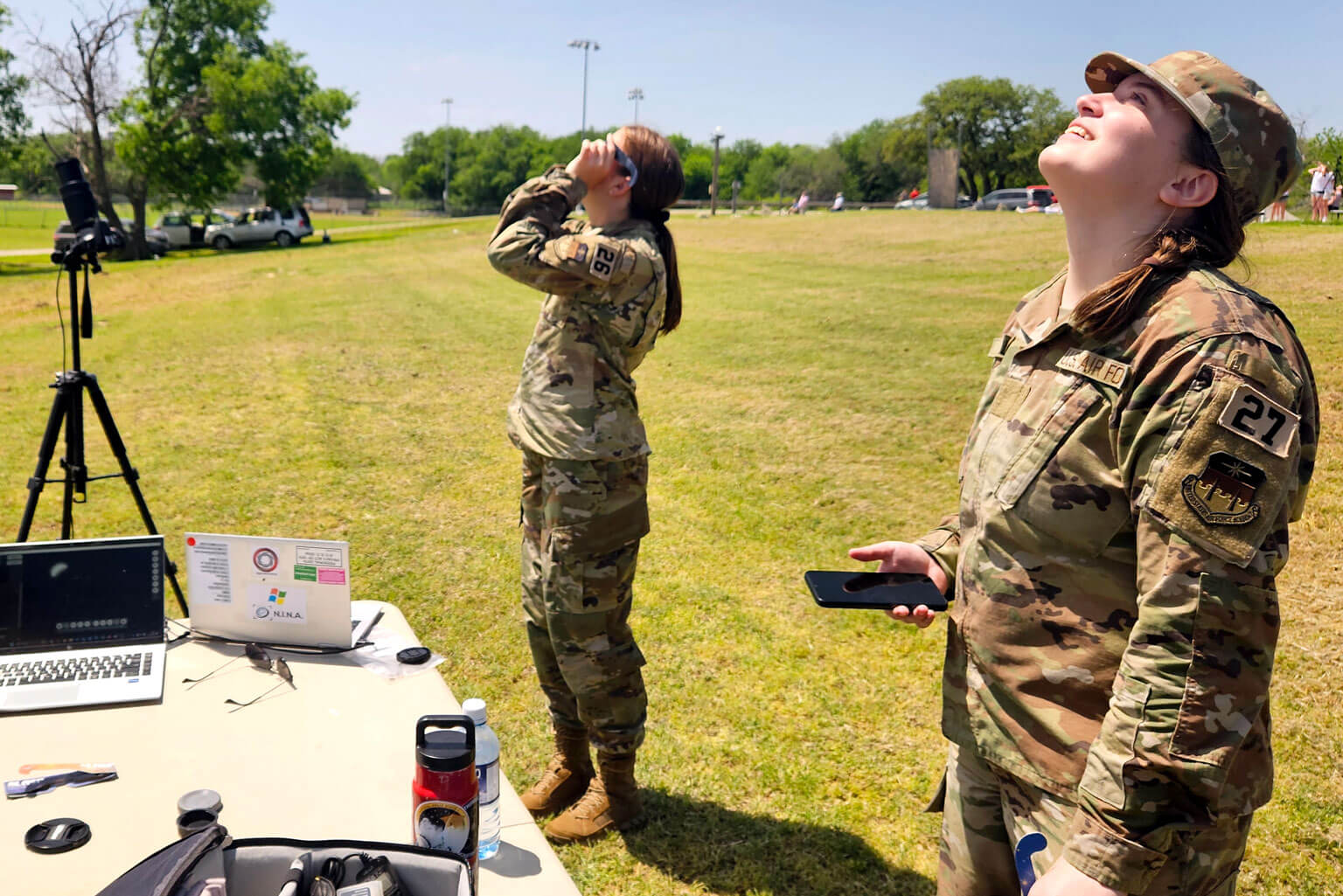
U.S. Air Force Academy Physics and Astronomy Club members prepare to view the total solar eclipse in Texas April 8, 2024. Club members traveled to Hamilton, Texas, and McLeansboro, Illinois, to view the eclipse. (Courtesy photo provided by Lt. Col. Benjamin Roth)
By Randy Roughton
U.S. Air Force Academy Strategic Communications
U.S. AIR FORCE ACADEMY, Colo. – U.S. Air Force Academy cadets can pursue their passions through numerous clubs representing multiple interests. One example of club life at the Academy is the Physics and Astronomy Club. Throughout the year, the club’s 60-plus members can participate in events, such as star gazing, experiments and field trips.
Recently, almost 20 club cadets traveled to Hamilton, Texas, and McLeansboro, Illinois, to view the April 8 total solar eclipse. The two cadet groups were among 40 teams supporting NASA’s research that studied the sun’s corona to learn about the outer layers only visible during a total eclipse. They conducted research to support NASA’s Citizen Continental America Telescopic Eclipse next-generation equipment and the Eclipse Mega Movie Project.
Physics and Astronomy Club cadets in charge, Cadet 2nd Class Ty Stromberg and Cadet 3rd Class Ryan Kovacs, said their team collected data using digital, event-based and polarization cameras, along with solar telescopes with special filters. Their research will help study solar activity and the impact it has on technology, including satellites and GPS communications.
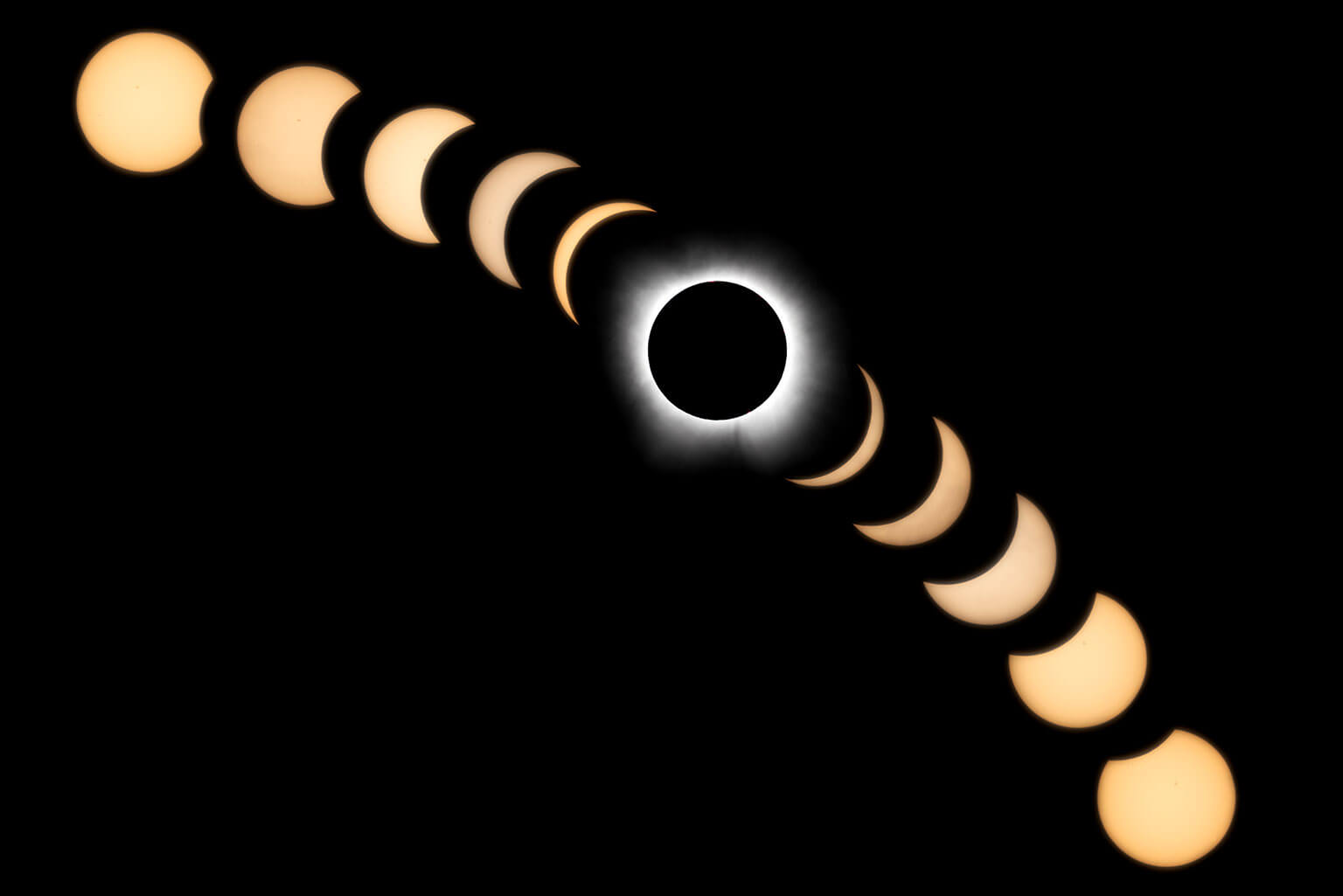
Cadet 1st Class Brandon Lindner’s time-lapse photography captures the phases of the total solar eclipse in Texas April 8, 2024. U.S. Air Force Academy Physics and Astronomy Club members traveled to Hamilton, Texas, and McLeansboro, Illinois, to view the eclipse. (U.S. Air Force photo by Cadet 1st Class Brandon Lindner)
Cadet clubs offer an opportunity to pursue passions outside the classroom
The Physics and Astronomy Club allows cadets to pursue additional learning of both subjects while they pursue their majors. Kovacs and Stromberg are Physics majors who joined the club because they say they “love looking at the nighttime sky.” Club membership has jumped 200 percent from the first couple of years after the COVID-19 pandemic when it dropped to below 20 members, Stromberg said.
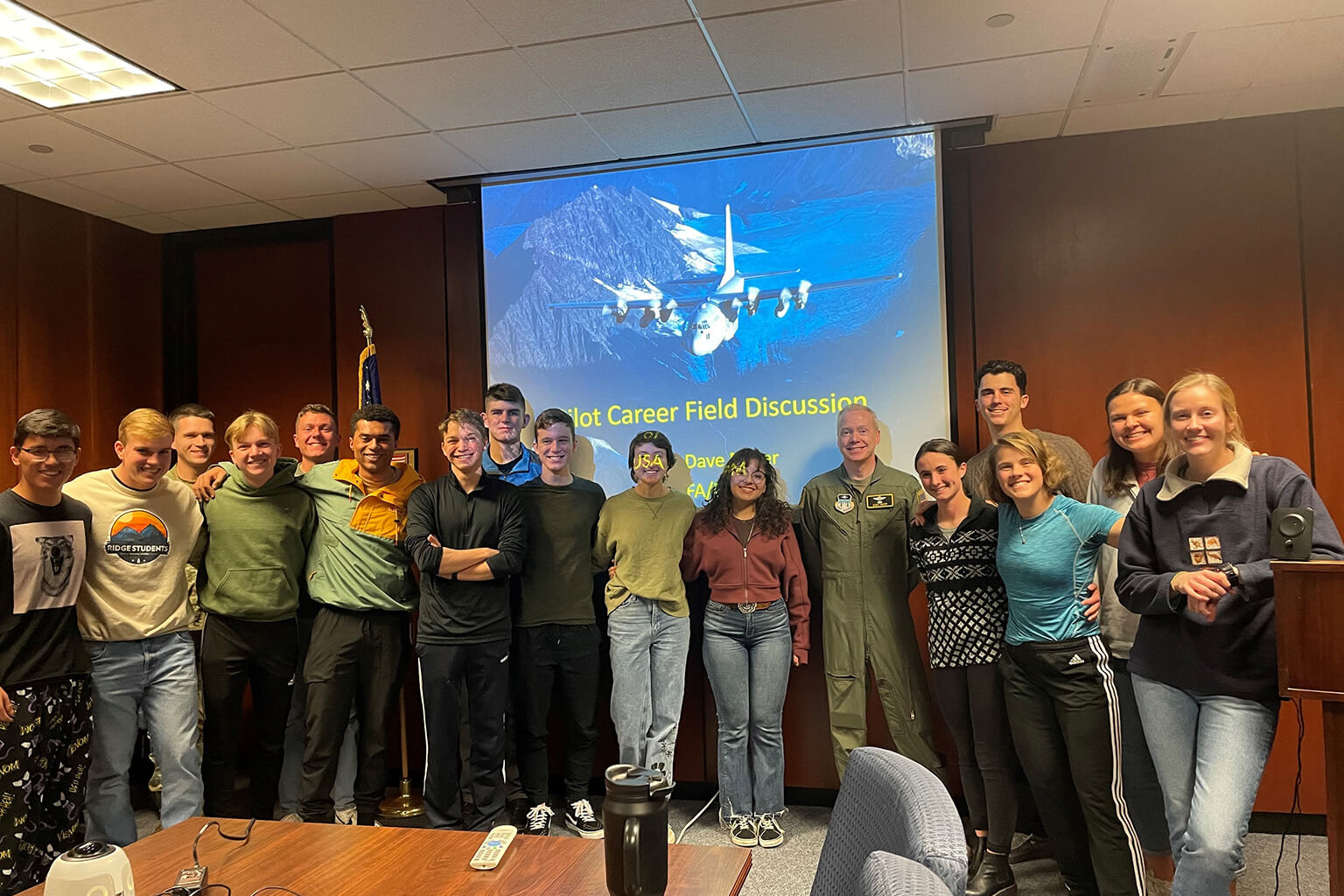
Lt Col David Meier gave a seminar on his pilot and physics career at an evening with Society of Physics students. (Courtesy photo)
Like many clubs at the Academy, the Physics and Astronomy Club offers opportunities to pursue interests that cadets are passionate about, Kovacs said. They can expand on what they learn in the classroom and put it into action.
“First of all, it’s a great way to lead,” Kovacs said. “This is my first leadership position, and I learned a lot of skills that I am going to apply when I become an officer. What’s great about it is I’m doing it with physics and science, which is what I love. It helps build the motivation, passion and drive to succeed in and outside the classroom.”
Additionally, club members with grade point averages of 3.4 and higher can be inducted into the National Society of Physics Students.
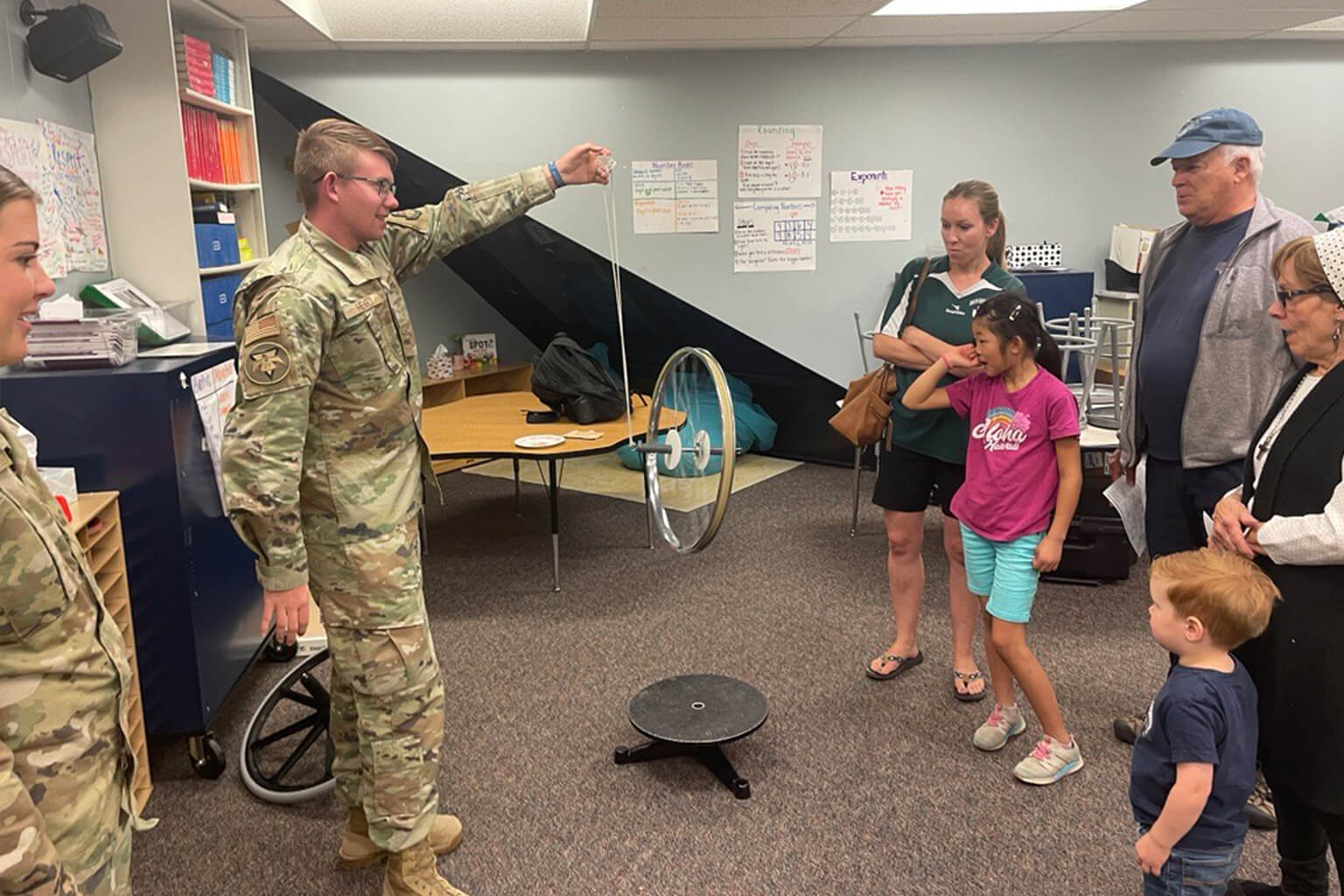
C3C Skylar Henry demonstrates principles of angular momentum during a Physics is Phun event. (Courtesy photo)
“Physics is Phun” focuses on education efforts for the public and young students
“Physics is Phun” is the club’s outreach and education effort for the public and younger students. Cadets visit elementary schools and teach children the concepts of electricity, magnetism and momentum through interactive demonstrations. They also reinforce physics, astronomy and safety concepts, such as not looking directly into the sun, particularly during a total solar eclipse.
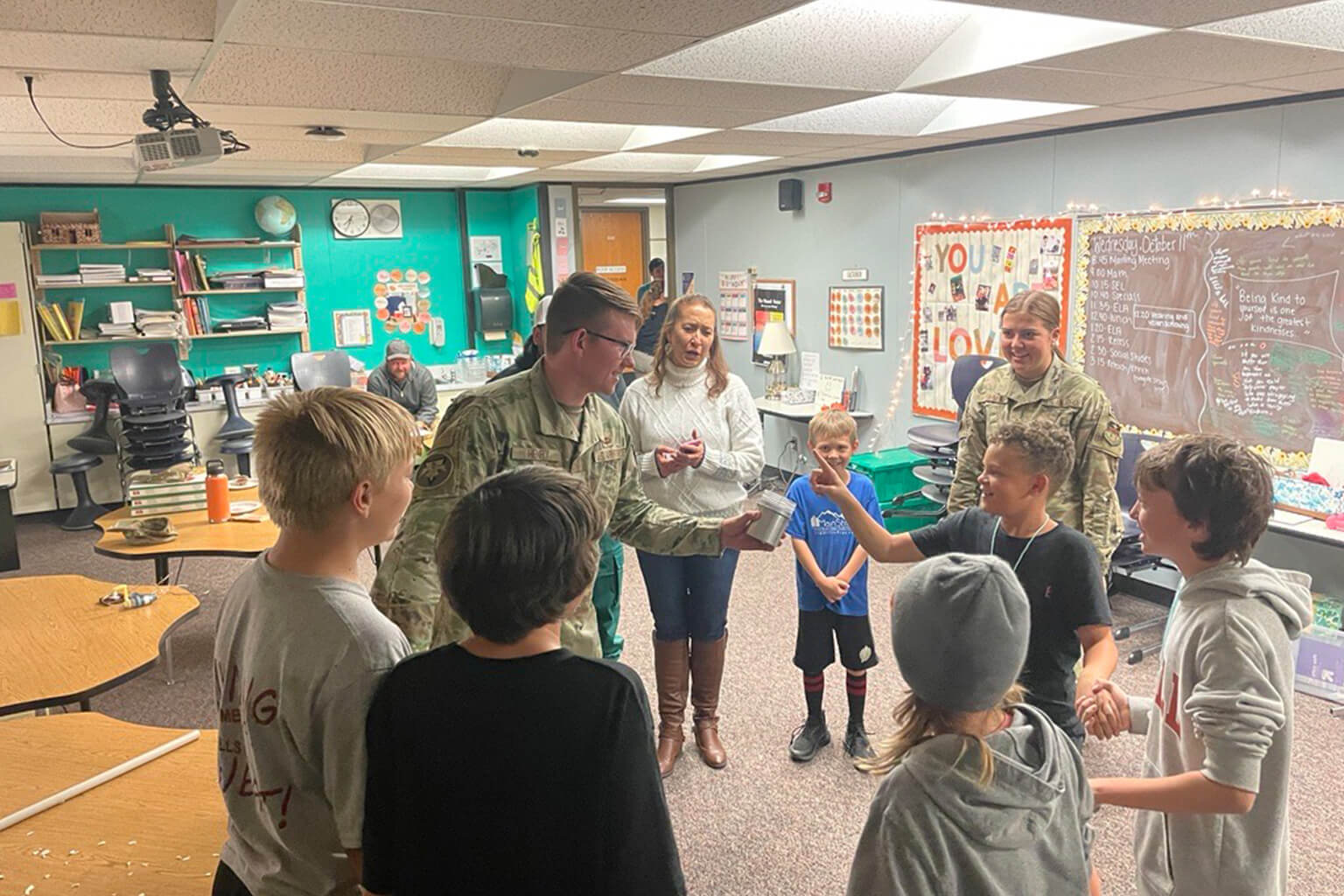
C3C Julie Simms and C3C Skylar Henry demonstrates principles of electricity during a Physics is Phun event. (Courtesy photo)
“We will set up several demonstrations to give the students new experiences that they will find interesting,” Stromberg said. “As we go along with the demonstrations, we explain everything that happens. Then the kids get to try it themselves. We try to get them to jump-start their interest in physics.”
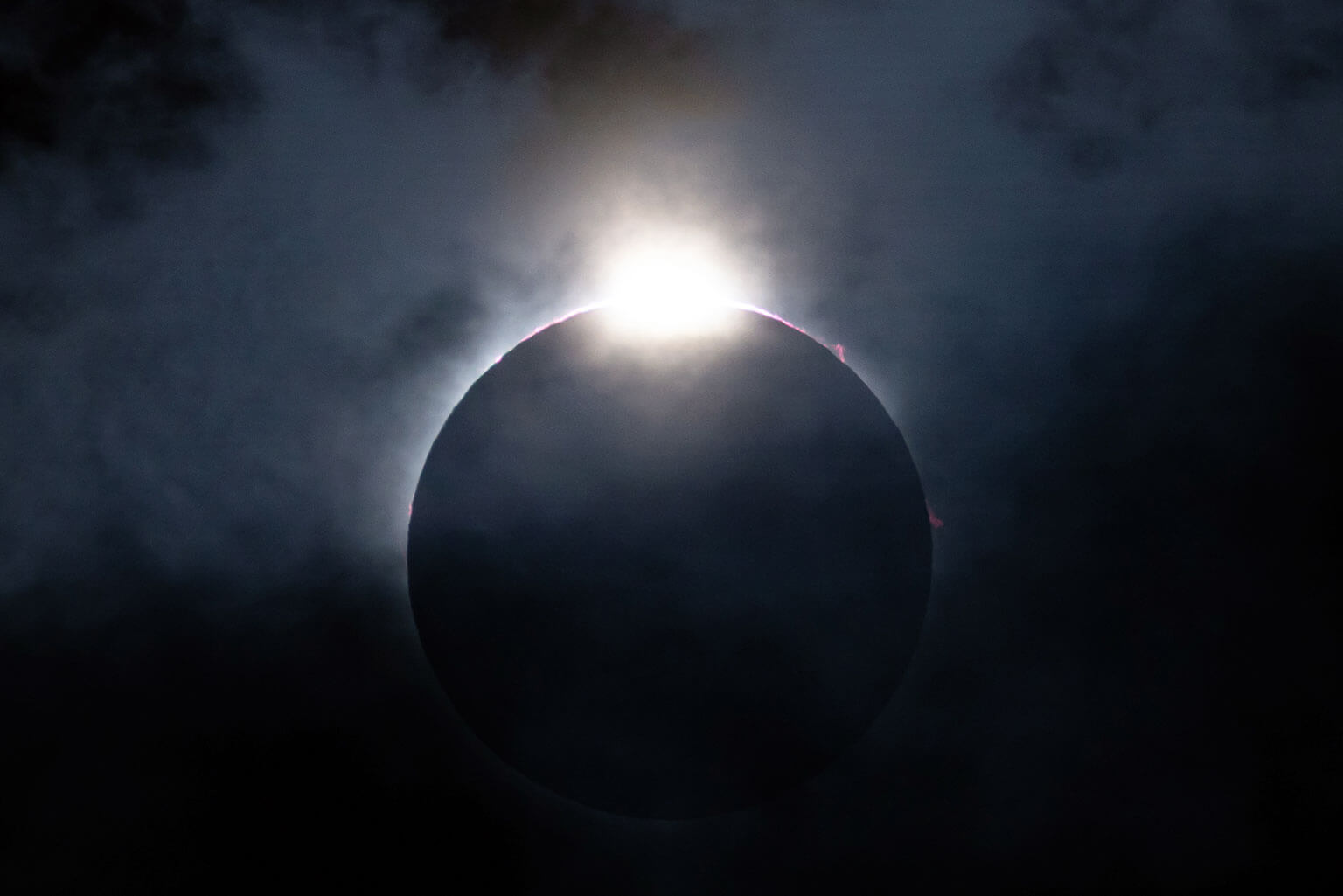
Pictured is the full total solar eclipse in Texas April 8, 2024. U.S. Air Force Academy Physics and Astronomy Club members traveled to Hamilton, Texas, and McLeansboro, Illinois, to view the eclipse. (U.S. Air Force photo by Cadet 1st Class Brandon Lindner)
Through their work with the U.S. Air Force Academy Planetarium, club members lead weekend public shows, movie nights for other clubs and other events.
“Most of us are involved with the club because we love looking at the night sky,” Stromberg said. “With our star parties, we provide telescopes and invite people to come look at the stars.”
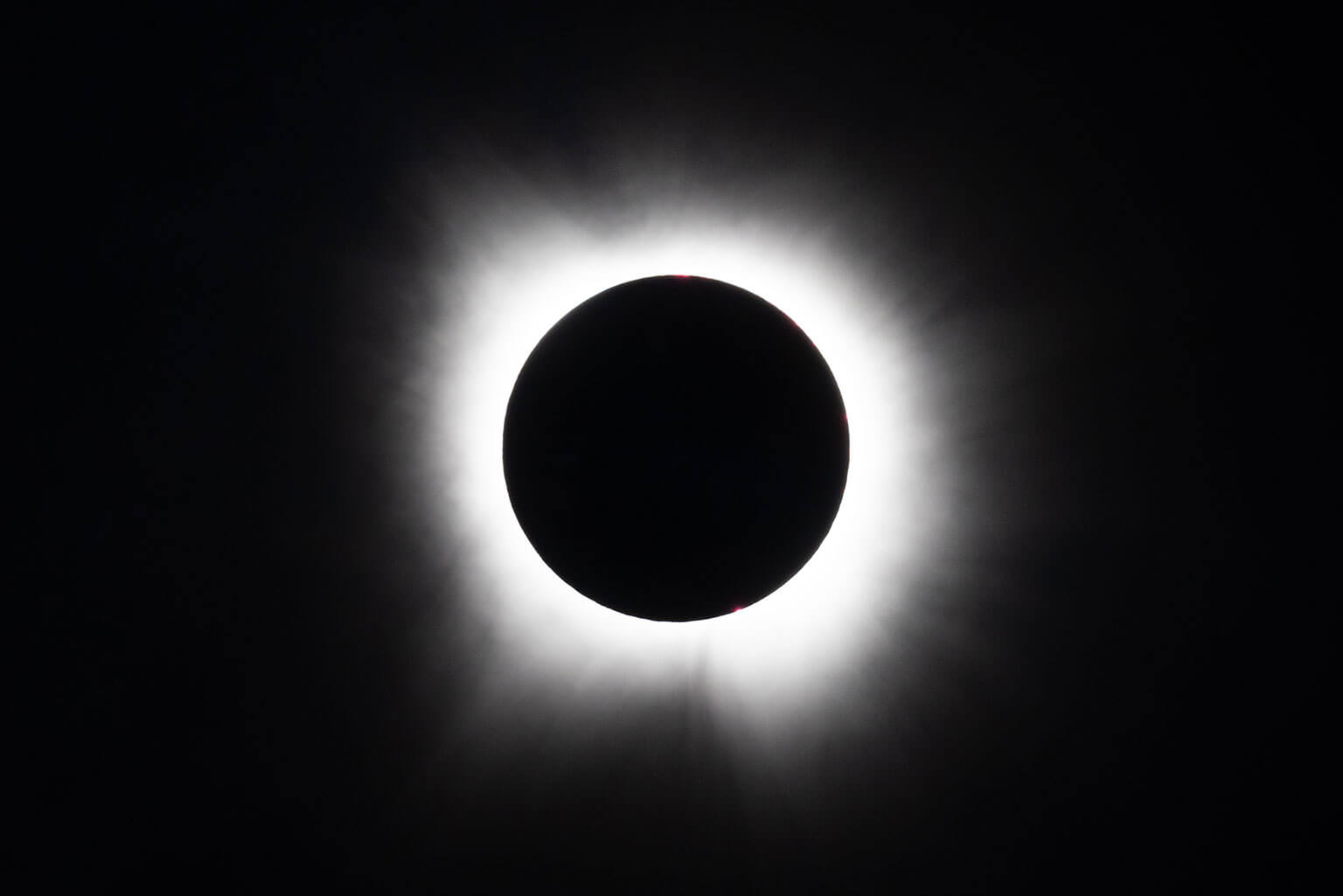
The full total solar eclipse is shown in Texas April 8, 2024. U.S. Air Force Academy Physics and Astronomy Club members traveled to Hamilton, Texas, and McLeansboro, Illinois, to view the eclipse. (U.S. Air Force photo by Cadet 1st Class Brandon Lindner)
Physics and astronomy careers in the Air Force and Space Force
Physics majors prepare themselves for a variety of possible careers in the U.S. Air Force and U.S. Space Force, Stromberg said. The club gives an outlet outside the classroom to facilitate more activities and learning in preparation for their job after graduation.
“A Physics major prepares you for pretty much every job in the Air Force or Space Force,” Stromberg said. “You can’t limit yourself with what you learn in physics… With physics you learn the foundations of practically everything you’re interested in. An education in physics can set you up for doing just about any job after you leave the Academy.”
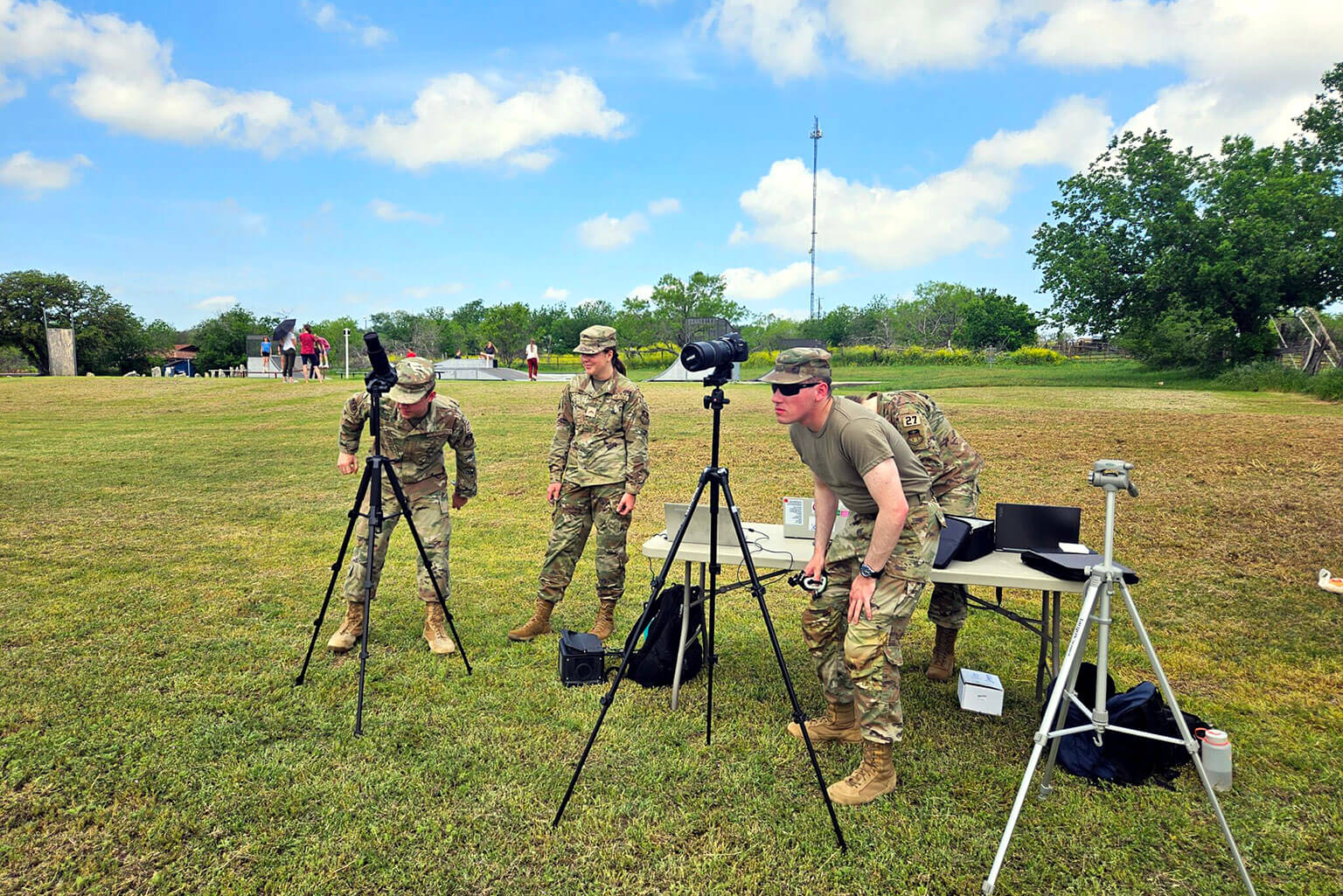
U.S. Air Force Academy Physics and Astronomy Club members prepare to view the total solar eclipse in Texas April 8, 2024. Club members traveled to Hamilton, Texas, and McLeansboro, Illinois, to view the eclipse. (Courtesy photo provided by Lt. Col. Benjamin Roth)